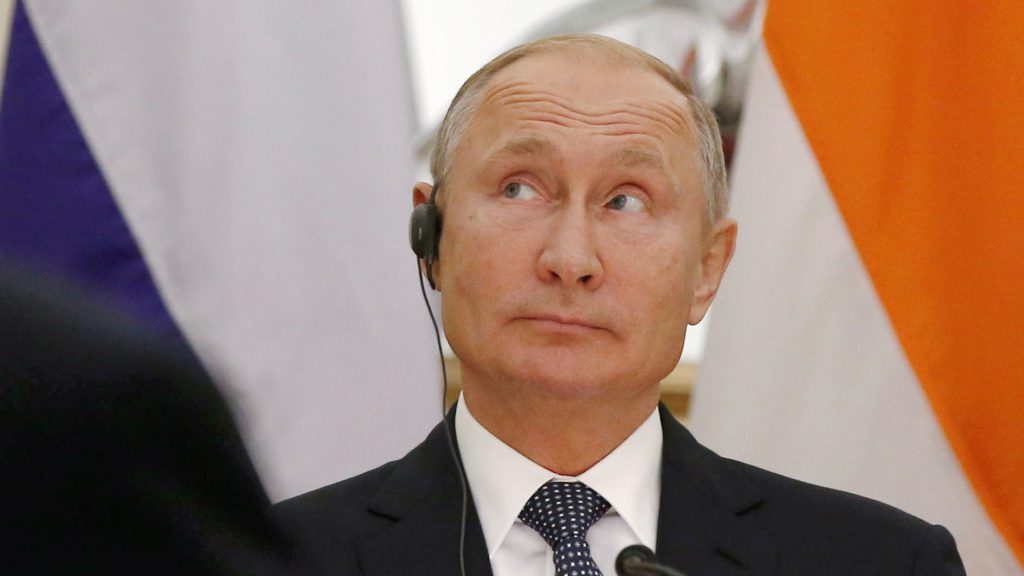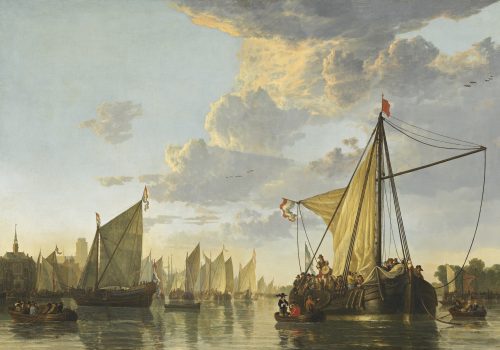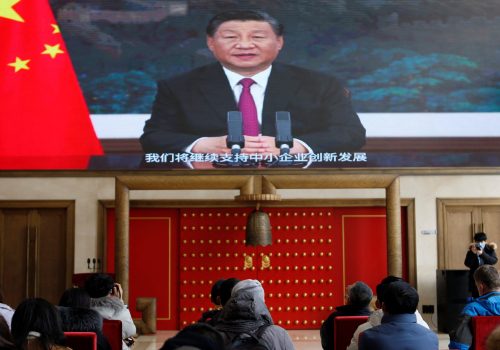The world has been shaken by Russian President Vladimir Putin’s full-scale military assault on Ukraine—a flurry of air strikes, tank advances, naval maneuvers, and even the threatened use of nuclear weapons. But in reality, a “hybrid war” has been going on for years, blending political, military, economic, cyber, and even socially driven activities that have fallen below the threshold of armed conflict but still meet specific objectives. Key fronts in this war-within-a-war have included mis- and disinformation campaigns in Russia and Ukraine, the manipulation of internal Ukrainian politics, and the cultivation of support for Putin by Russian oligarchs who help bankroll his adventurism.
Rarely, however, are tactics such as influence operations and economic manipulation a stand-alone strategy. Instead, like instruments in an orchestra, they achieve a greater goal when played together. In Putin’s case, that goal may be as straightforward as flaunting to the world that Russia is a global player.
Since its invasion of Ukraine last month, which has featured brutal, indiscriminate shelling of civilians across the country, the Kremlin has clearly broadened its appetite for conventional conflict. But that doesn’t mean it won’t continue its hybrid campaigns elsewhere. As NATO members—especially those who fear they might be next in Putin’s warpath—debate how to help Ukraine better defend itself, they should also dust off their own hybrid playbook to fight back and force Putin into a defensive posture without having to commit to a large-scale traditional military engagement against a nuclear Russia.
On all fronts
Putin has long maintained that the collapse of the Soviet Union was a great tragedy; if he were to reunite its Russian-speaking territories, according to the strongman’s likely logic, his legacy would be secured.
But his message has been sent far beyond the former communist empire (where the Kremlin continues meddling in Georgian politics, for example, and occupying its territory). Forays into African conflict areas, such as the Central African Republic and Libya, through the Wagner Group private paramilitary force have led to working relationships—if not open friendly ones—with host governments. Meanwhile,Putin’s desire to act as a key player in Afghanistan and Syria—either by amplifying local leaders’ voices in the international space or as a problem solver—also highlights his desire to build a cadre of global supporters, increase his stature, and further cement Russian influence abroad.
By way of soft power, the Kremlin wields assets as diverse as the Russian Orthodox Church and the Night Wolves biker gang. The former can influence the faithful both at home and in foreign countries, helping rally support for Russian-backed local politicians, while the latter appeals to young men in a bid to persuade them that Russia is a cultural force. The Sputnik V vaccine for COVID-19 is another avenue through which to cast Russia as an innovator and leader with answers to pressing global issues.
Most recently, Russian groups have even sought to rally around Putin’s so-called “special military operation” in Ukraine by promoting its now-ubiquitous “Z” (painted on armor and other fighting vehicles) as a galvanizing symbol. It will likely fulfill several roles: consolidate supporters of the invasion; create a brand to be used across a wide range of channels, from social media to t-shirts; and give the invasion a name that is unique, accessible, and not overtly military-sounding. For Putin to sell the war as something other than the unprovoked invasion of a neighboring state, invoking “Z” makes the entire endeavor seem more like a video game or movie and distances Russians from the reality.
Fighting back
So what can be done? In the short term, the United States and its allies can follow through on many efforts they have undertaken in recent days—from sanctioning Putin-supporting oligarchs and seizing their assets abroad to coordinating plans of easing US and European reliance on Russian oil and natural gas. They can also conduct overt and covert influence operations directed at the Russian people about the mounting cost of conflict in Ukraine, as well as cyber attacks against Russian tactical military systems. Meddling with the military’s payroll and benefits system to affect the morale of both front-line and rear units is yet another option.
In the longer term, the West should sow discord within the Russian military and security services over its effectiveness and status both domestically and internationally. It should also carry out cyberattacks against senior-level officers and political leaders and harass Russian soldiers operating abroad to limit their abilities to conduct their missions. Building stronger partnerships with former Soviet states in the Baltics, as well as Eastern European countries outside NATO, is also key. Meanwhile, exposing weaknesses in both the cyber infrastructure of key Russian ministries—defense, foreign affairs, and interior, as well as the Federal Security Service—and within Putin’s base of support would tie up resources that would otherwise be used for international expansionism.
In the meantime, Putin will remain the top story on every news channel in the world. In some ways, he has met his goal of becoming relevant on the global stage. It is unlikely that Putin will change course in the short-term, especially since he likely thrives on the attention national and international leaders are currently thrusting upon him. This makes it even more imperative for the West to act now.
Jennifer Counter is a nonresident senior fellow in the Atlantic Council’s Scowcroft Center for Strategy and Security and its Forward Defense practice.
Further reading
Wed, Dec 22, 2021
Seizing the advantage: A vision for the next US national defense strategy
Report By Clementine G. Starling-Daniels, Tyson Wetzel, Christian Trotti
In this latest installment of the Atlantic Council Strategy Papers series, Forward Defense’s Clementine Starling, Lt Col Tyson Wetzel, and Christian Trotti articulate their vision and recommendations for the next US National Defense Strategy, including clearer prioritization, investments and divestments, reposturing of US forces, a new warfighting concept, and a focus on transnational threats like hybrid warfare and climate change.
Tue, Feb 8, 2022
US adversaries have been mastering hybrid warfare. It’s time to catch up.
Hybrid Conflict Project By Marc Polymeropoulos, Arun Iyer
Bad actors are embracing hybrid warfare. Time is of the essence for Washington to seize the advantage.
Wed, Feb 23, 2022
Today’s wars are fought in the ‘gray zone.’ Here’s everything you need to know about it.
Hybrid Conflict Project By
Our experts help illuminate this shadowy zone of strategic competition—and offer ways for Washington and its allies to begin seizing the advantage.
Image: Russian President Vladimir Putin attends a presentation of a joint statement with Indian Prime Minister Narendra Modi in New Delhi, India, October 5, 2018. Photo by Adnan Abidi/REUTERS



